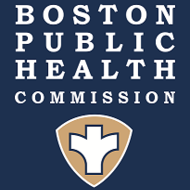Combined Sewer Overflow Health Alerts
Public health warnings related to sewage discharges are posted on this page. There are currently seven active public health warnings related to sewage discharge.
The public is advised to avoid contact with affected water bodies for at least 48 hours after a sewage discharge or overflow, during rainstorms, and for 48 hours after rainstorms end, due to increased health risks from bacteria or other pollutants associated with urban stormwater runoff and discharges of untreated or partially treated wastewater.
Combined Sewer Overflows
A combined sewer overflow (CSO) occurs when a large storm overwhelms the combined sewerage system causing rainwater to mix with wastewater and discharge to a nearby water body. This prevents sewage backups into homes and businesses.
When a CSO occurs, notifications to the public are made by the entity responsible for the sewage infrastructure. For surface waters in Boston, these are mainly the Boston Water and Sewer Commission and the Massachusetts Water Resources Authority.
- Boston Water and Sewer Commission outfall BOS019 adjacent to the Chelsea Street Bridge experienced a discharge or overflow that started on Thursday, May 22 at 10:20 p.m. and ended on Friday, May 23 at 1 a.m., creating a potential public health risk. This event impacts the waters of the upper inner harbor of Charlestown and East Boston. This advisory will expire on Sunday, May 25 at 1 a.m., 48 hours after the overflow has ended.
- Boston Water and Sewer Commission outfall BOS065 in the Fort Point Channel experienced a discharge or overflow that started on Friday, May 23 at 12:50 a.m. and ended on Friday, May 23 at 3:30 a.m., creating a potential public health risk. This event impacts the waters of Fort Point Channel and the Downtown and South Boston waterfront. This advisory will expire on Sunday, May 25 at 3:30 a.m., 48 hours after the overflow has ended.
- Boston Water and Sewer Commission outfall BOS073 in the Fort Point Channel experienced a discharge or overflow that started on Thursday, May 22 at 11 p.m. and ended on Friday, May 23 at 3:05 a.m., creating a potential public health risk. This event impacts the waters of Fort Point Channel and the Downtown and South Boston waterfront. This advisory will expire on Sunday, May 25 at 3:05 a.m., 48 hours after the overflow has ended.
- Boston Water and Sewer Commission outfall BOS070 in the Fort Point Channel experienced a discharge or overflow that started on Thursday, May 22 at 9:05 p.m. and ended on Thursday, May 22 at 11:20 p.m., creating a potential public health risk. This event impacts the waters of Fort Point Channel and the Downtown and South Boston waterfront. This advisory will expire on Saturday, May 24 at 11:20 p.m., 48 hours after the overflow has ended.
- Boston Water and Sewer Commission outfall BOS003 in the East Boston shore of the Lower Inner Harbor experienced a discharge or overflow that started on Thursday, May 22 at 10:50 p.m. and ended on Friday, May 23 at 1:40 a.m., creating a potential public health risk. This event impacts the waters of East Boston and the lower inner harbor. This advisory will expire on Sunday, May 25 at 1:40 a.m., 48 hours after the overflow has ended.
- Massachusetts Water Resource Authority Outfall MWR203 at the Prison Point facility on the Charles River in Charlestown experienced a discharge or overflow that started on Thursday, May 22 at 7:03 p.m. and ended on Friday, May 23 at 3:29 a.m., creating a potential public health risk. This event impacts the waters of the Charles River and Inner Harbor. This advisory will expire on Sunday, May 25 at 3:29 a.m., 48 hours after the overflow has ended.
- Massachusetts Water Resource Authority Outfall MWR201 upstream of the Boston University Bridge on the Charles River experienced a discharge or overflow that started on Thursday, May 22 at 8:43 p.m. and ended on Friday, May 23 at 3:02 a.m., creating a potential public health risk. This event impacts the waters of the Charles River basin down to the Inner Harbor. This advisory will expire on Sunday, May 25 at 3:02 a.m., 48 hours after the overflow has ended.
For more information about CSOs and to sign up for CSO notifications for Boston Harbor and Fort Point Chanel, please visit the Boston Water and Sewer Commission’s CSO notification page.
For notifications and alerts for sites on or around the Charles River, please visit the MWRA’s CSO notification page.
Public Health Notifications
State regulations also require local public health departments to provide notice to the public when these discharges may create a risk to public health, including when a discharge lasts for more than two hours.






